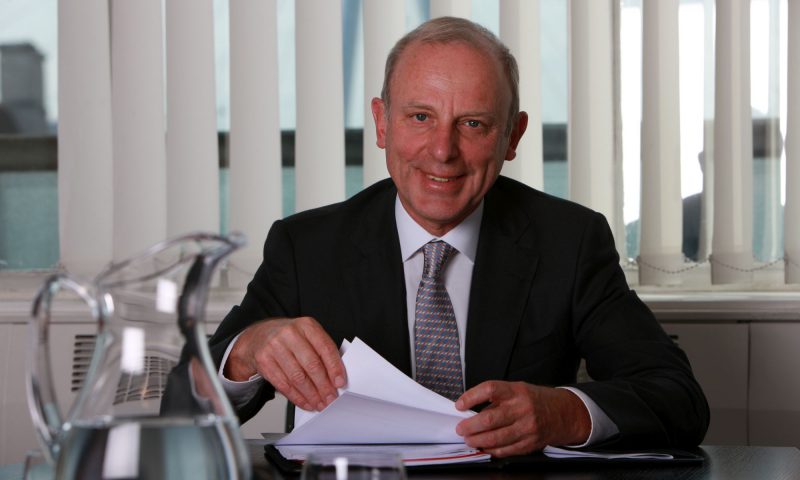Karol Sikora: Sceptic of the Week
Sun 11:06 am +01:00, 3 Jan 2021
Owen Jones launched a vicious attack on Professor Karol Sikora in the Guardian a couple of days ago. His sin? To be a lockdown sceptic. That’s “dangerous”, according to Jones, who has been an enthusiast for placing the entire country under house arrest since March. Brendan O’Neill, editor of Spiked, has written a rebuttal.
It isn’t only COVID-19 that is mutating. So is cancel culture. This nasty strain of censorship is spreading, intensifying, becoming ever-more poisonous and harmful to the body politic. The more coronavirus spreads, the more the virus of cancellation spreads too, with packs of censors and neo-Stalinists now demanding the silencing and punishment of anybody who deviates even slightly from the consensus on COVID-19. Just consider the current efforts to destroy the reputation of Karol Sikora.
Professor Sikora is the cancer expert who has been questioning the Covid consensus for the past few months. He has queried the need for harsh lockdowns and kicked up a necessary fuss over the NHS’s suspension of various forms of medical treatment, including for cancer. In the fog of fear about COVID-19, Sikora has shone a light of hope. We’ll get through it, he says. Don’t live in dread, he counsels. Let normal life, and normal medical treatment, continue as much as possible, he’s advised. Has he always been right? Of course not. Show me the man who has. He suggested there wouldn’t be a second wave. In May he said that, come August, things will be ‘virtually back to normal’. That was wrong. String him up! Get out your rotten tomatoes. Pelt this speechcriminal who made a prediction that was not correct.
For the supposed crime of not being entirely right about the course coronavirus would take, Professor Sikora is now public enemy No1 in the eyes of the lockdown fanatics. Leading the mob, as is so often the case these days, is Guardian columnist Owen Jones. From the very start of the Covid crisis, Mr Jones, like many other privileged millennial leftists, has relished the authoritarianism of the lockdown. In March he expressed delight at being ‘placed under house arrest along with millions of people under a police state by a right-wing Tory government’. Yes, if you are well-off, middle class, capable of working from home and cancer-free, lockdown was probably a riot. For other people, however, it wasn’t. Professor Sikora’s chief sin was to express this truth – to say that lockdown will exact a wicked toll on many people – and now privileged beneficiaries of lockdown like Mr Jones are out to destroy him for it.
O’Neill concludes by reminding us how important free speech is – particularly during a national crisis.
Dissent is always good; but in an era of unprecedented authoritarianism it becomes essential. When officialdom assumes control over every aspect of our lives – our social lives, our family lives, whether we can go to work, even whether we can leave the house – then it is absolutely right to question things, constantly, unflinchingly. No one should ever feel comfortable with the suspension of freedom. They should be talking about it and challenging it every hour of every day. Whether their challenges are ‘correct’ or ‘incorrect’ is not the most important thing here – the most important thing is that we maintain a culture of criticism in response to the most extraordinary climate of authoritarianism any of us has ever experienced.
Dogma is the enemy of progress. Dissent – however irritating the police, the government and the Guardian might find it – is the guarantor of progress. It is the means through which all of us, including society more broadly, entertain the possibility that we are wrong. That lockdown is a mistake, that giving teenagers puberty-blockers is an error, that the Earth is not in fact at the centre of the solar system. Dogma protects even immoral policies and incorrect thinking from criticism by demonising dissenters; dissent, on the other hand, helps to shine a light on the wrongness of certain political strategies or ideological beliefs by encouraging criticism and scrutiny. Even where dissenters are wrong, factually, the climate they help to create is of enormous benefit to society and to mankind.
We must defend freedom of speech in this crisis. Our lives are locked down – and many people accept that as a temporary measure – but our minds should never be locked down. Free thought and free speech are the great guards – our only guards, in fact – against the ossification of public debate and the creation of new, potentially damaging orthodoxies and policies. If we allow free thinking to die alongside the economy, millions of people’s jobs and those cancer patients who were neglected for months on end, then society will be the poorer for a very, very long time. So carry on, Positive Professor. Dissent is now the duty of every individual who wants to ensure that freedom is still breathing when this cursed lockdown is lifted.
Worth reading in full.
Stop Press: Nobel Prize winner Michael Levitt came to the defence of Karol Sikora, Sunetra Gupta, Carl Heneghan and Mike Yeadon on Twitter in response to a Tweet that relied on data about Covid hospital admissions to purportedly show the second wave is bigger than the first. In fact, if you measure the impact of each wave in terms of excess deaths, the second wave is far, far smaller.
https://lockdownsceptics.org/










